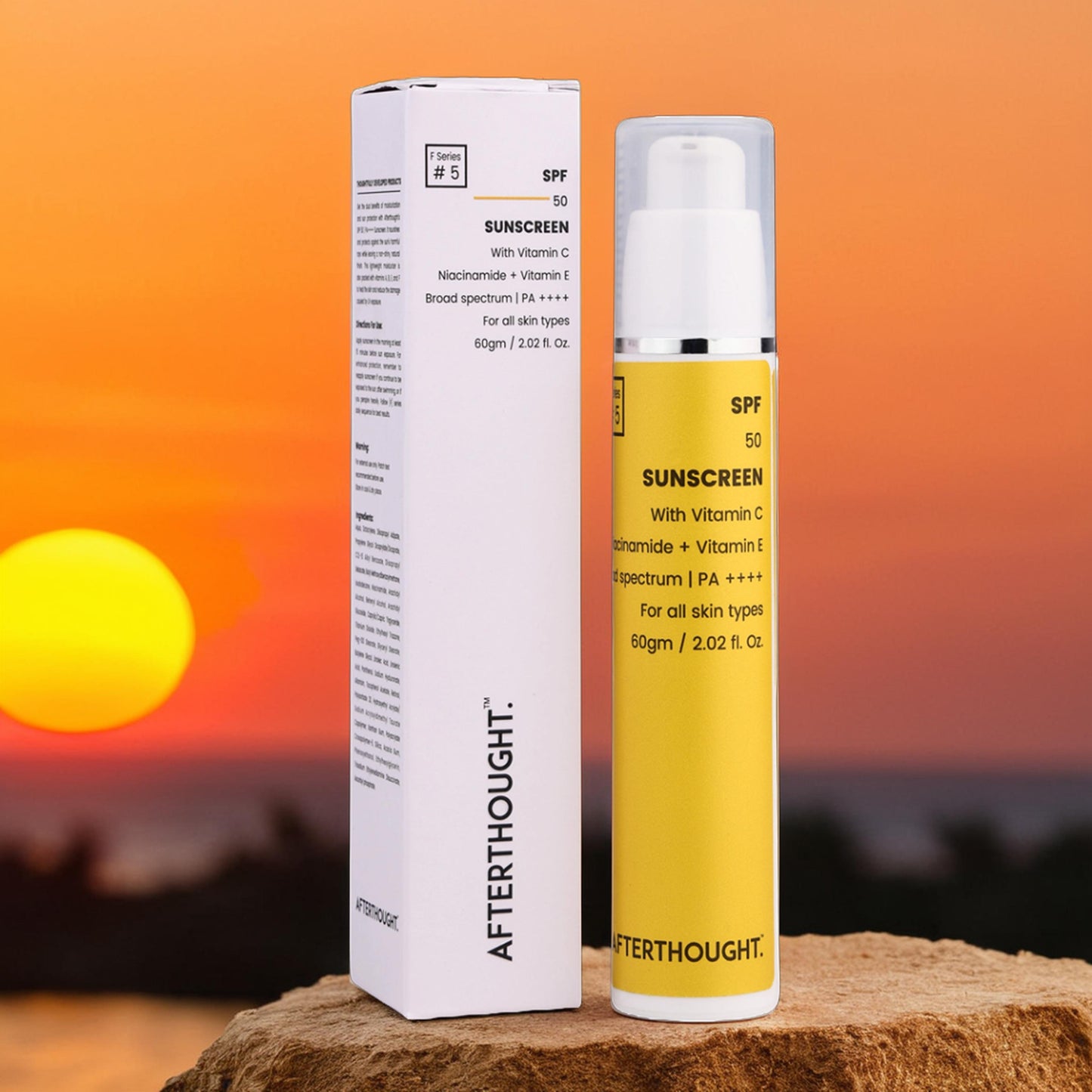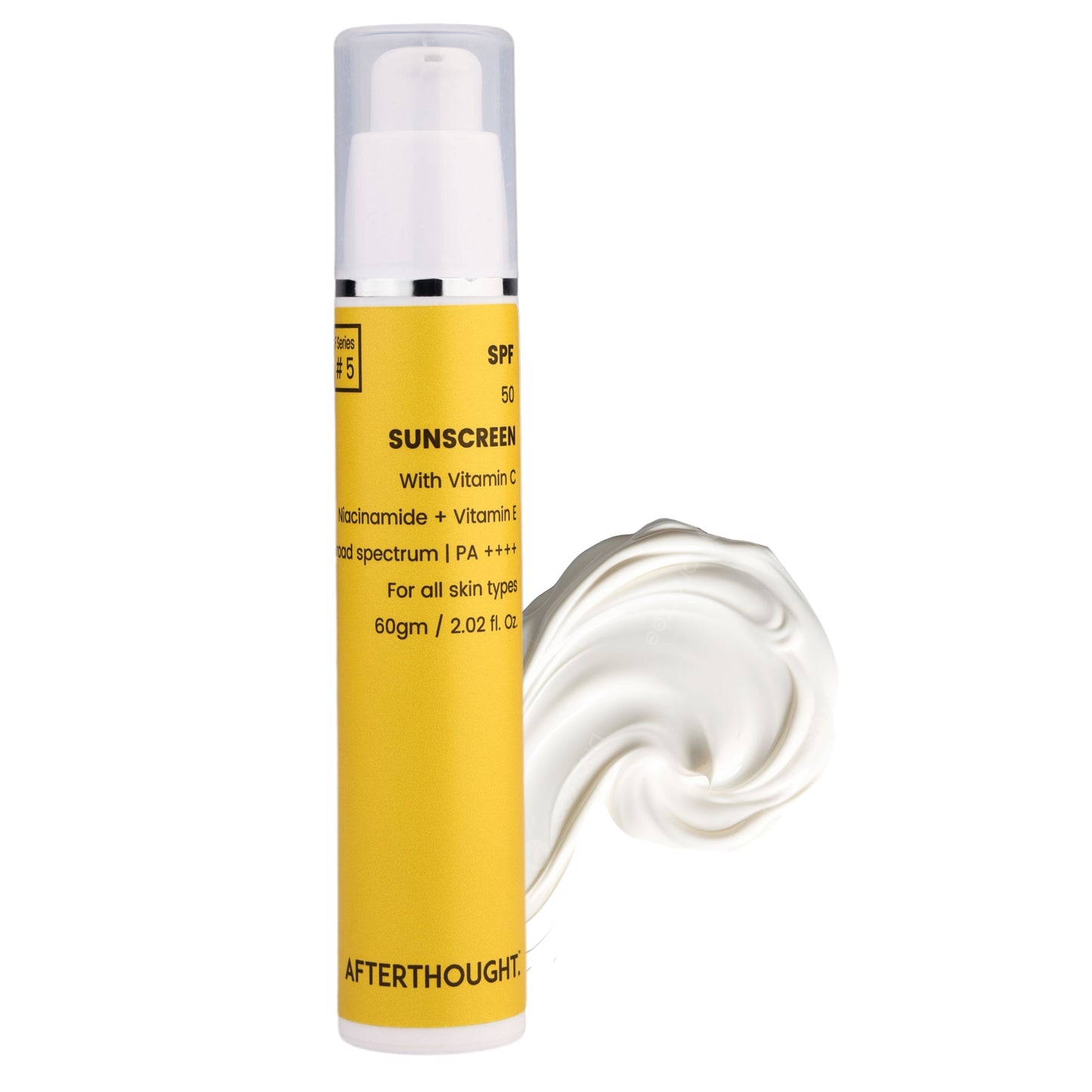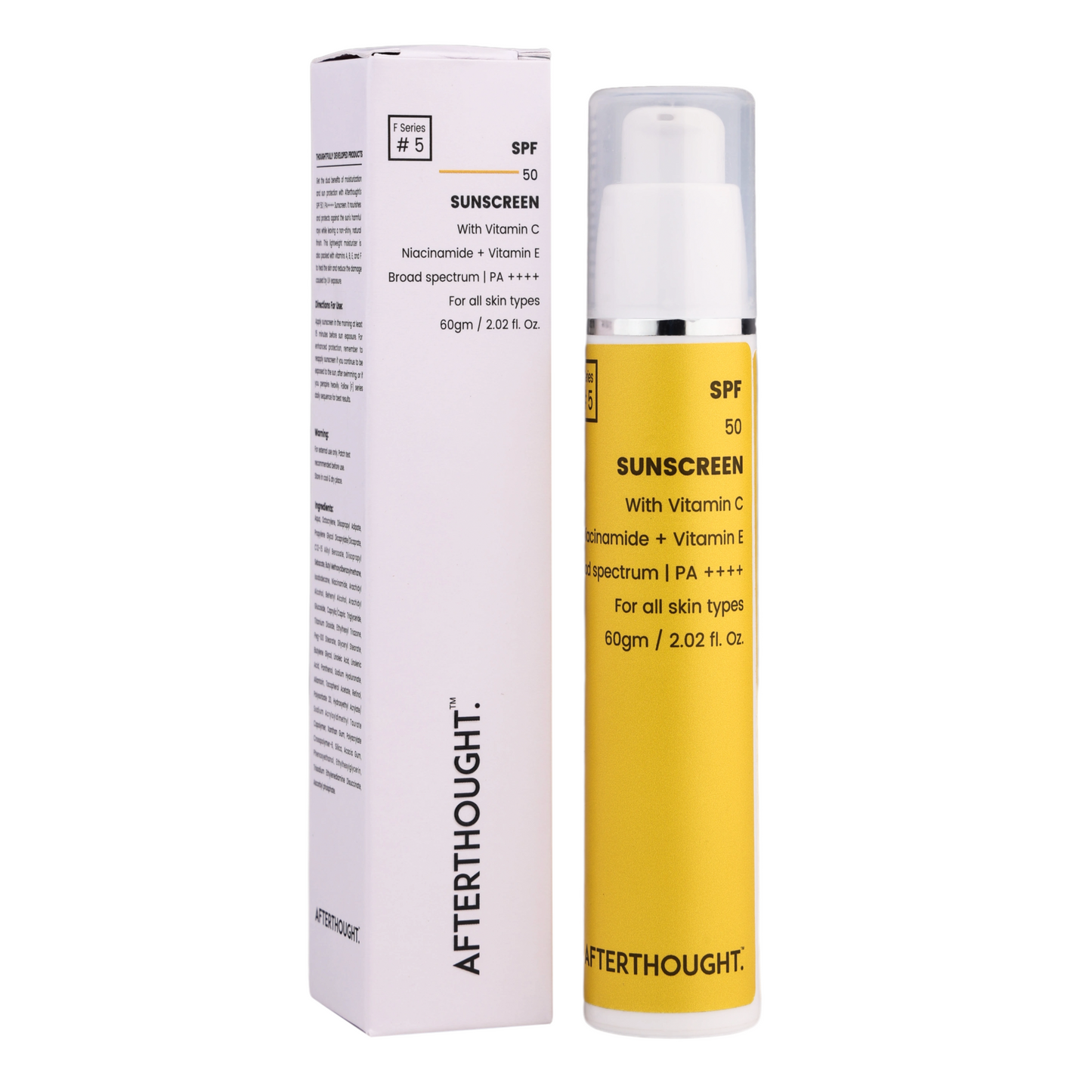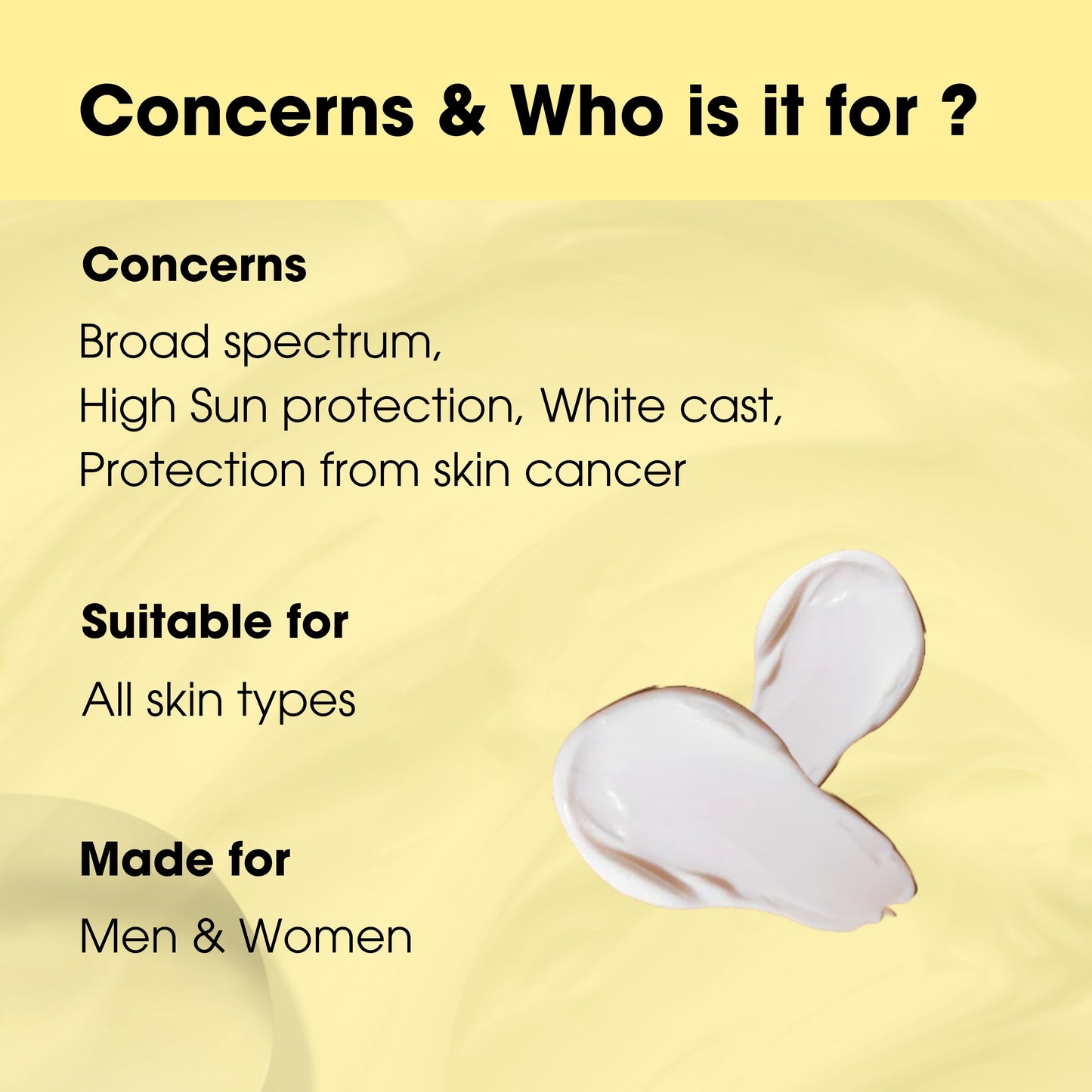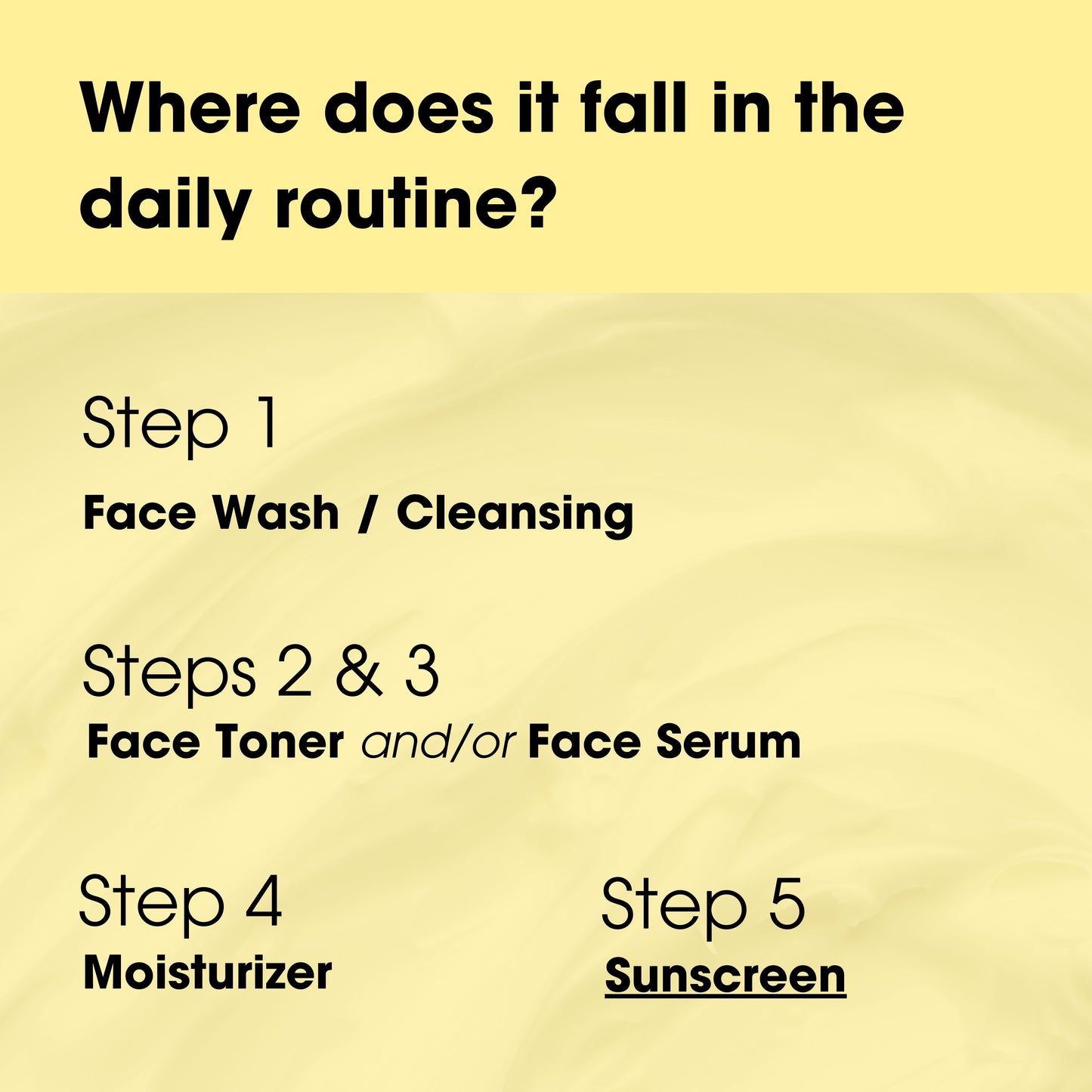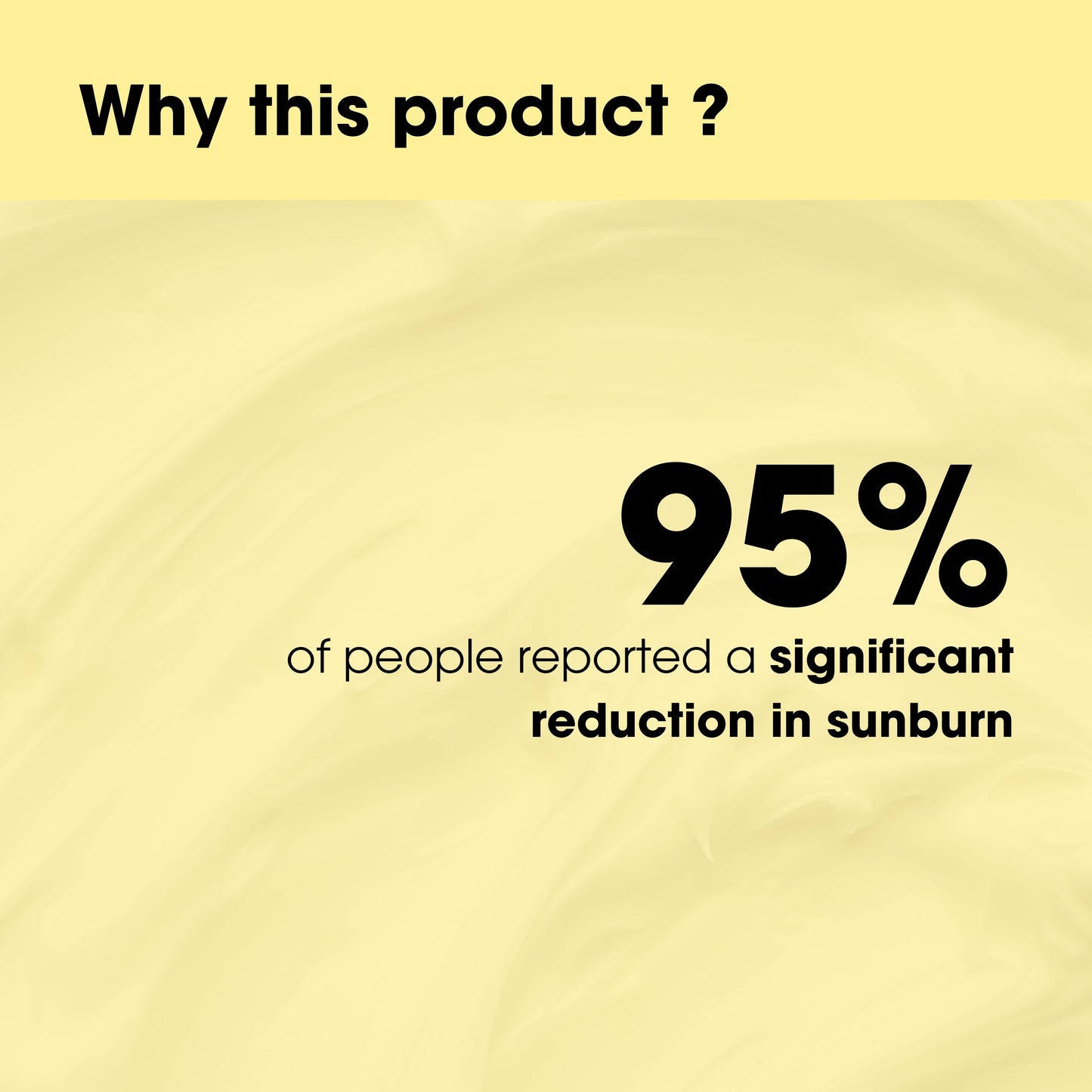Is Gel Based Sunscreen Good For Oily Skin?
For those with oily skin, finding the right skincare products can often feel like a daunting task. Sunscreen, in particular, is a product that many with oily skin tend to shy away from, fearing clogged pores, breakouts, or an excessively greasy appearance.
However, protecting your skin from harmful UV rays is non-negotiable, and that’s where gel-based sunscreens come in. If you're wondering whether a gel-based sunscreen is suitable for oily skin, the answer is a resounding yes!
Let's dive deeper into why this formulation is ideal for oily and acne-prone skin types.
Understanding Oily Skin
Oily skin is characterized by an overproduction of sebum, the skin's natural oil. While sebum is essential for maintaining the skin’s moisture balance, an excess of it can lead to a shiny complexion, clogged pores, and an increased likelihood of acne. People with oily skin often find it challenging to use traditional sunscreens, especially cream-based formulations, which can feel heavy and greasy. This is where gel-based sunscreens come in as a game-changer.
The Appeal of Gel-Based Sunscreens
Unlike their cream or lotion counterparts, gel-based sunscreens offer a lighter, more refreshing texture. They are water-based, which makes them less likely to clog pores, providing a breathable barrier on the skin. Here’s why they are particularly well-suited for oily skin:
1. Lightweight and Non-Greasy
Gel-based sunscreens are known for their lightweight texture, which allows the skin to breathe. For those with oily skin, this means no more heavy, greasy feeling post-application. They absorb quickly into the skin without leaving a shiny residue, which is a significant advantage.
2. Non-Comedogenic
One of the biggest concerns for people with oily skin is the potential for clogged pores. Many gel sunscreens are labeled as non-comedogenic, meaning they are formulated to not block pores, thus reducing the risk of breakouts and acne.
3. Oil-Free Formulation
Gel sunscreens are typically oil-free, which is crucial for oily skin types. They won’t add extra oil to your skin, helping you maintain a matte finish throughout the day.
4. Cooling Effect
Due to their water-based composition, gel sunscreens often have a cooling and soothing effect on the skin. This is particularly beneficial for oily skin, which can sometimes feel inflamed or irritated due to breakouts.
Key Ingredients to Look for in a Gel-Based Sunscreen
When choosing a gel-based sunscreen for oily skin, it's essential to pay attention to the ingredients to ensure you're getting the maximum benefit without any potential irritants. Here are some key ingredients to look for:
1. Hyaluronic Acid
While oily skin may seem well-hydrated due to excess sebum, it can still lack moisture. Hyaluronic acid helps retain moisture without making the skin greasy, maintaining the skin’s hydration balance.
2. Niacinamide
This is a multi-tasking ingredient that not only regulates oil production but also helps reduce the appearance of large pores. It has anti-inflammatory properties, making it great for those with acne-prone skin.
3. Aloe Vera
Known for its soothing properties, aloe vera can help calm irritated skin, especially if you’re dealing with inflammation or sensitivity.
4. Vitamin E
While oily skin needs to avoid heavy oils, lightweight antioxidants like vitamin E can help protect the skin from environmental damage and promote healing without clogging pores.
5. Zinc Oxide and Titanium Dioxide
These mineral-based sunscreens provide broad-spectrum protection without irritating the skin or causing breakouts. They are often found in gel-based formulas and are less likely to leave a white cast, making them ideal for daily wear.
Application Tips for Oily Skin
While gel-based sunscreens are excellent for oily skin, how you apply them can also make a difference in their effectiveness and how they interact with your skin. Here are a few tips to optimize your sunscreen routine:
1. Cleanse Before Applying
Start with a gentle, oil-free cleanser to remove excess oil and impurities from your skin. This creates a clean base for your sunscreen and helps prevent clogged pores.
2. Use the Right Amount
Apply about a nickel-sized amount of sunscreen to your face. Many people under-apply sunscreen, which reduces its effectiveness. Ensure you cover all areas, including your neck and ears.
3. Layer it Correctly
If you're using other skincare products like serums or moisturizers, apply them before your sunscreen. Allow each layer to absorb fully before moving to the next step.
4. Reapply as Needed
Even the best sunscreens need to be reapplied every two hours, especially if you’re outdoors. If you wear makeup, consider using a sunscreen powder or mist for easy reapplication throughout the day.
Common Misconceptions About Sunscreen and Oily Skin
Despite the benefits, there are still a few misconceptions around sunscreen and oily skin that need to be cleared up:
1. "Sunscreen will make my skin oilier."
Many people with oily skin believe that wearing sunscreen will exacerbate their oiliness. While some sunscreens can feel greasy, gel-based formulas are designed to be lightweight and mattifying, helping to control shine.
2. "I don’t need sunscreen if I’m indoors."
UV rays can penetrate windows, so even if you’re spending most of your day indoors, it’s essential to apply sunscreen. Gel-based sunscreens are comfortable enough for all-day wear, even when you're not in direct sunlight.
3. "Sunscreen causes acne."
While some sunscreens can be comedogenic, gel-based sunscreens are typically formulated to avoid clogging pores. When chosen carefully, they can actually help prevent breakouts by protecting the skin from sun damage that can exacerbate acne scars and hyperpigmentation.
Conclusion
For those with oily or acne-prone skin, sunscreen is non-negotiable, but it doesn't have to be a source of frustration.
Gel-based sunscreens offer a lightweight, non-greasy alternative to traditional sunscreens, ensuring that your skin stays protected from harmful UV rays without the risk of breakouts or an oily sheen.
With the right formula and application, gel-based sunscreens can become a staple in your daily skincare routine, providing the protection and comfort your skin deserves.
Also Read: Does Sunscreen Make Your Skin Glow?

